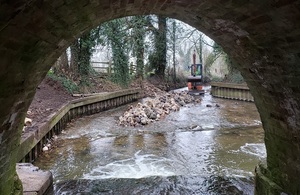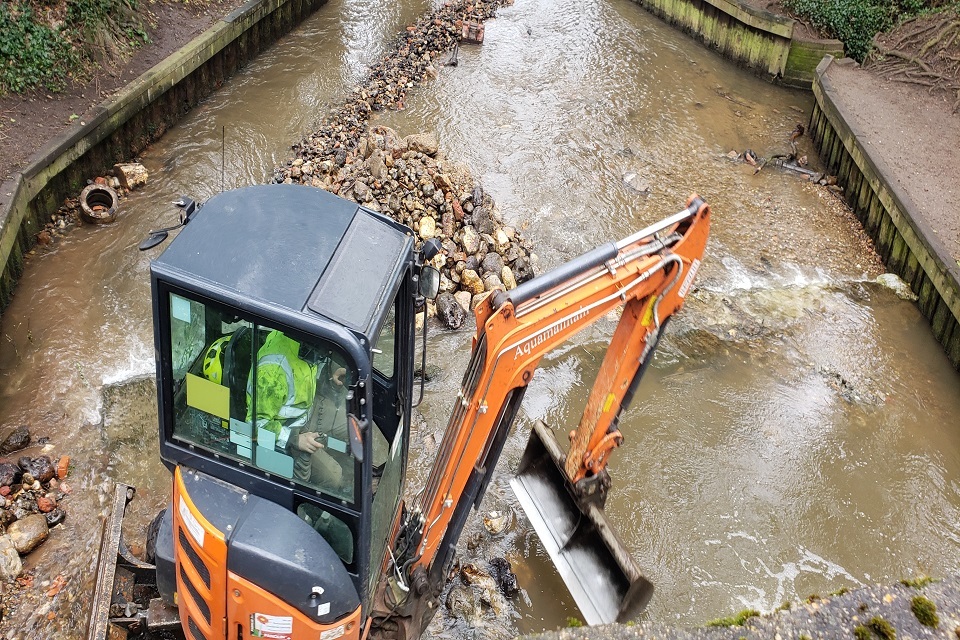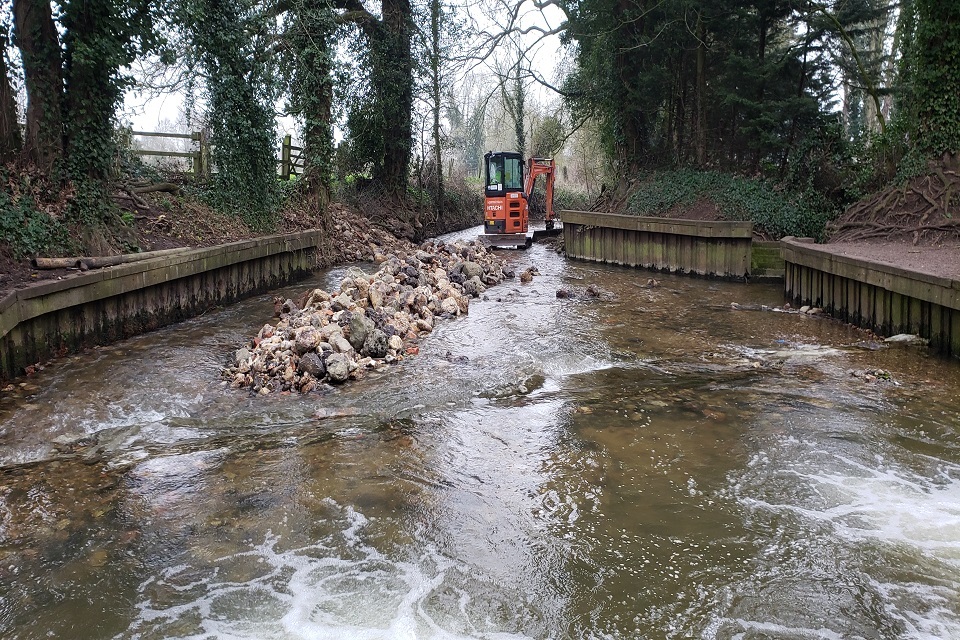Boost for fish migration in Norfolk chalk stream
A specially designed fish pass is being installed in a Norfolk chalk stream, to enable fish to swim freely through the upper River Tiffey.

The project is expected to be completed in the next few weeks. Picture: Norfolk Rivers Trust
The Environment Agency and the Norfolk Rivers Trust’s joint project started in 2019 when a redundant weir near Wymondham Abbey was removed. The weir was causing an obstruction to fish migration.
During that phase of work it was discovered that the foundations of nearby Becketswell Bridge were an obstacle for all fish species. So they devised plans to create a fish and eel pass.
Once funding was secured for this new phase of the project, work began to install it earlier this year. It is set to be completed in the next couple of weeks.
The new pass costing £55,000, is made up of a series of wooden sleepers with notches. They will gently raise the water levels so that fish can swim over the bridge foundations in all conditions.
On completion, fish species such as minnow, perch, gudgeon and eel will be able to easily navigate through the upper section of the river. This is a tributary of the River Yare.

There are only about 200 chalk streams in the world, and 58 of them are in East Anglia. Picture: Norfolk Rivers Trust
Amy Prendergast, catchment co-ordinator at the Environment Agency in East Anglia, said:
We are so proud to see the completion of this project, which has brought so many benefits to the local ecology. > Removing the weir has helped to restore the river to a more natural habitat and also reduced the flood risk to properties near Damgate Bridge.
The new fish pass further enhances those improvements, as now all species of fish can continue their journeys upstream.
We are grateful to Norfolk Rivers Trust for all their hard work in helping make this project a success. We would also like to thank the funding partners Broadland Catchment Partnership, as well as the town council and residents for being so encouraging.
Ursula Juta from Norfolk Rivers Trust said:
Working on this fish passage project has been a great experience. Knowing we’re making a positive impact on the ecology of the river and helping fish migrate freely is very rewarding.
Community engagement and education is at the heart of our work at Norfolk Rivers Trust. It’s been great to meet the Wymondham residents to explain the importance of the works. We’re a very small charity doing major river restoration work all over Norfolk so all the support is much appreciated.

On completion, fish species such as minnow, perch, gudgeon and eel will be able to easily navigate through the upper section of the river. Picture: Norfolk Rivers Trust
The Environment Agency will continue to monitor and survey the river to measure the effect of the project.
Other project partners are the Broadland Catchment Partnership, who contributed some of the funding, and Wymondham Town Council, who will be maintaining the structure.
The project is part of the North Norfolk Chalk Stream improvement programme. This builds on the work of the Norfolk Rivers Trust to develop and implement plans for chalk streams across the area.
There are only about 200 chalk streams in the world, and 58 of them are in East Anglia.
Chalk streams get their pure, clear water from underground chalk aquifers and springs, which then flows across flinty gravel beds.
This makes them perfect sources for clean water and ideal for lots of wild creatures to breed and thrive.